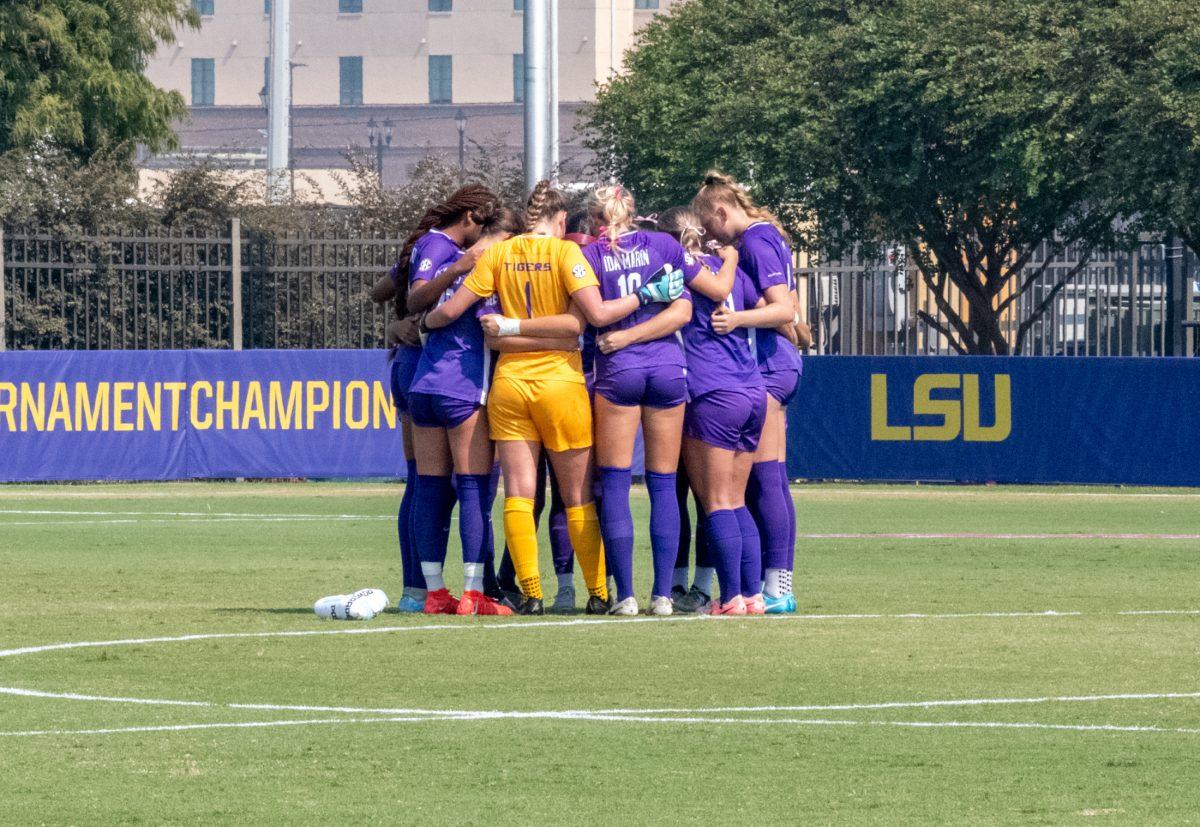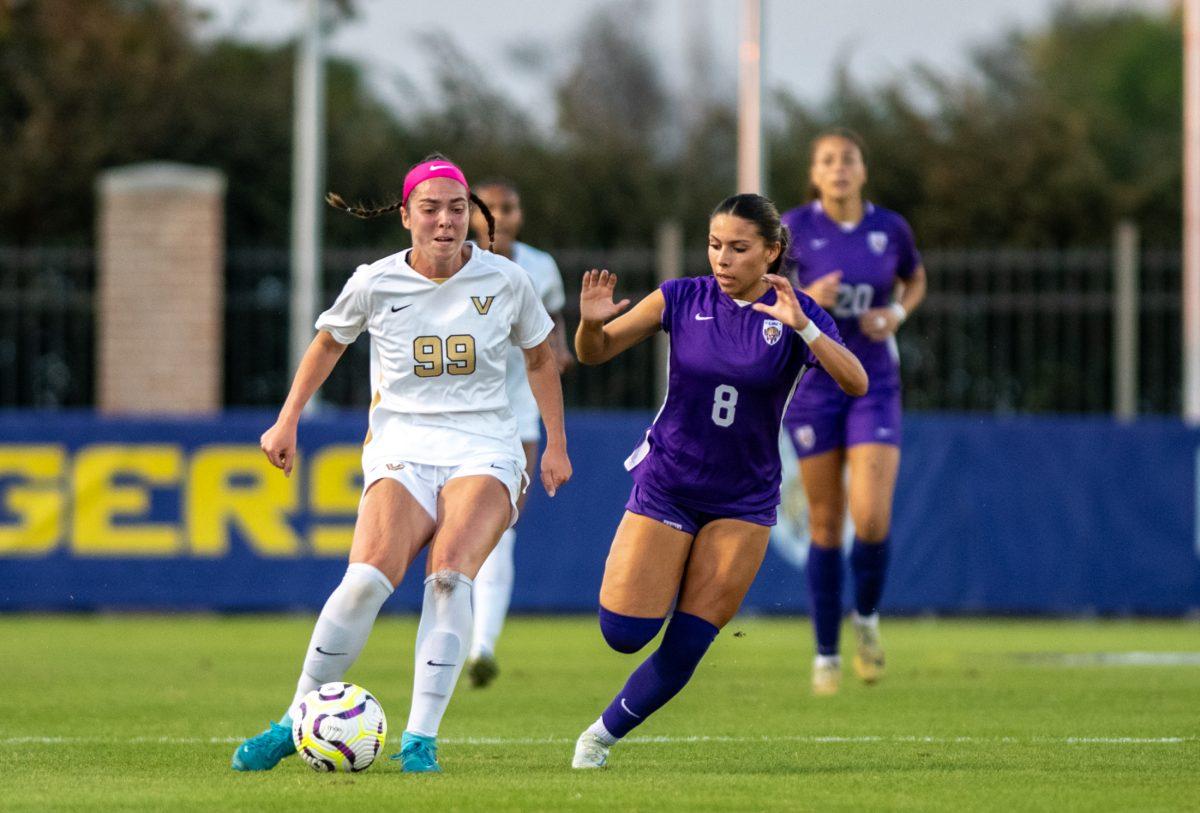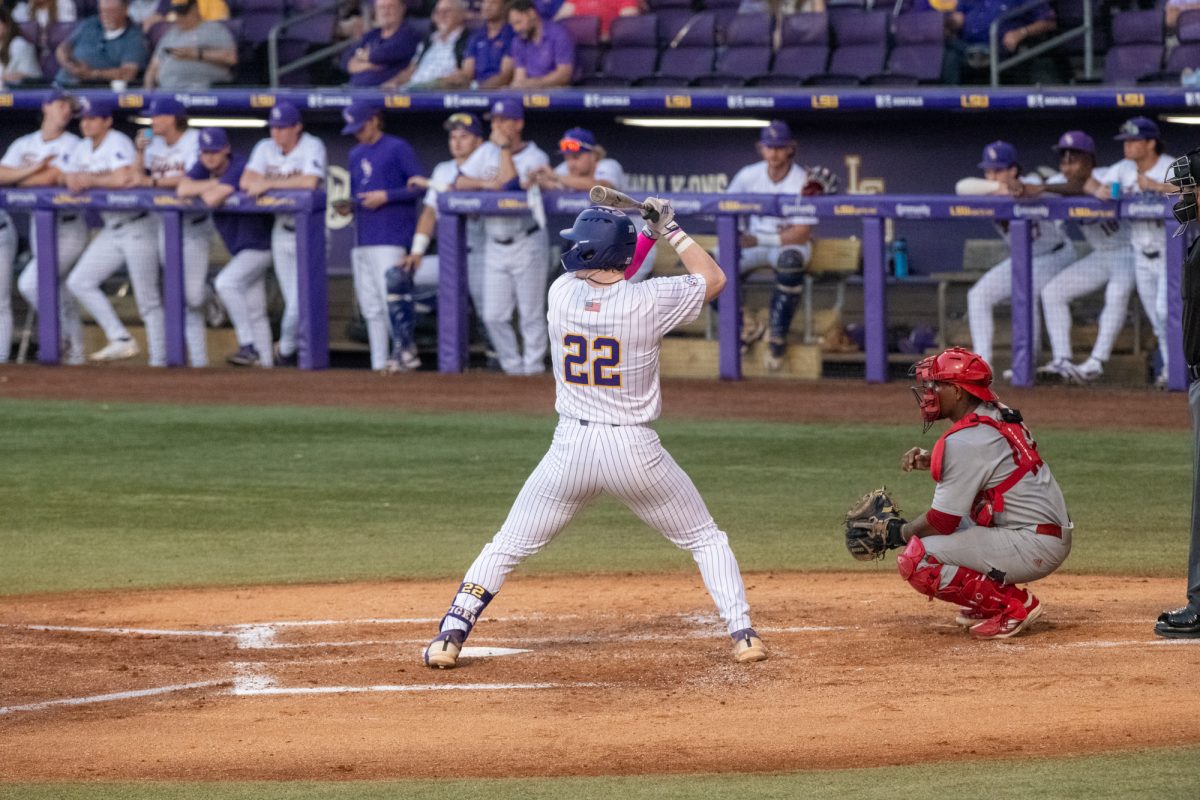“Get on the line.”
Players of all sports dread those words because only one thing follows them — running.
While strength and conditioning are crucial in all sports, in collegiate soccer, a team’s overall conditioning level can determine the outcome of a season from the first pre-season fitness test.
The LSU soccer team, which finished (5-13-2, 1-9-1 SEC), learned this lesson in 2014 when the Tigers’ lineup, featuring five or six freshmen a game, could not compete against the senior-laden upper echelon of the Southeastern Conference.
One major reason for LSU’s inability to compete with the top SEC teams stems from the freshmen’s fitness level and their battle with fatigue during their first college season.
“My biggest thing is it’s always the number of games in such a short number of days and the different physicality of those games,” said LSU coach Brian Lee. “[The freshman are] used to playing three games in three days on a weekend and thinking it’s fine. Now all of a sudden, playing two games in three days is much more physically taxing than those three games in three days.”
Preparing freshman for this jump in the physical nature of the game is difficult. Freshmen have a limited amount of time to train with LSU strength and conditioning coach Ryan Filo.
Unlike returning players, who have the entire spring and summer to train with Filo, freshmen have only have the preseason, or the summer if they enroll early, to adjust to the intensity of collegiate conditioning.
This summer, freshman defender Alexis Urch enrolled in summer classes and began training with Filo.
“In the beginning, it was definitely rough,” Urch said. “In the summer, we came in early. Thank God we did. We ran three times a week and lifted twice a week, and that definitely got us into a routine.”
One of the biggest adjustments to collegiate fitness training for freshman is the focus on weight training.
Even though fitness training in high school does include time in the weight room, the main focus in high school is running. This ensures players have a combination of stamina and speed to compete at the high school level.
“Coming in, I never knew how to do a hang clean or anything whatsoever in the weight room because I was like, ‘I am never going to lift weights. I’m not going to do this ever,’” said freshman forward Jorian Baucom. “I didn’t realize how important weights are, and I guess that was kind of difficult to get into. Now that I know it, it’s really helped.”
Strength training is crucial to prepare players for the physicality of the SEC.
Through establishing a routine of running and weight training, freshmen gradually adjust the fitness needed to reach a baseline, and then the training narrows according to position.
“A center midfielder is going to run four to five and half miles in a typical game,” Lee said. “A center back might run two and a quarter or two and a half. The forwards are a little more sprinters.”
Most of the fitness training is completed during the preseason because the training in conjunction with games would be too hard on players, Lee said.
But the work put into fitness during the offseason helps make the grind of the season much easier to handle.
“At first it was extremely hard, but I just feel like I have a strong mindset to push myself through it,” Urch said.
“Toward the end, after games I’d be tired, but not like I used to be. I think the game situations we really helped.”
You can reach Morgan Prewitt on Twitter @kmprewitt_TDR.
LSU soccer’s freshmen adjust to college-level fitness
November 12, 2014
LSU freshman forward Jorian Baucom (5) makes a dash for the ball Monday, September 8, 2014 during the Tigers’ game against Stephan F. Austin in LSU Soccer Stadium.
More to Discover










